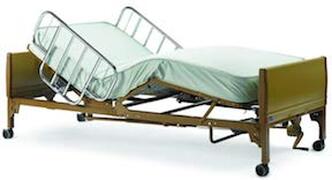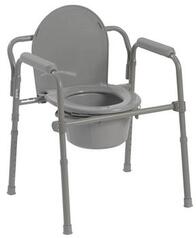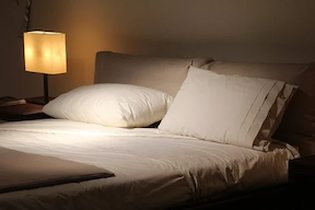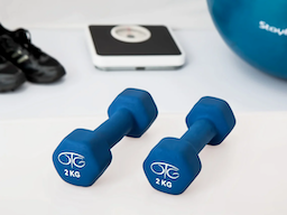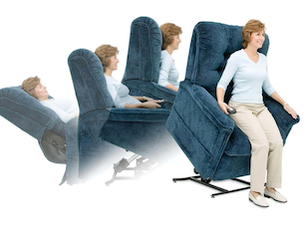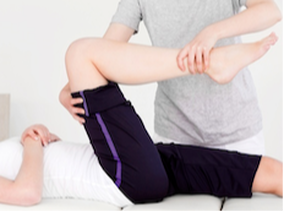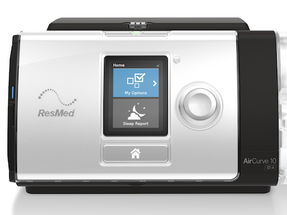Sleep and ALS |
|
|
People living with ALS often struggle with sleep. Challenges can include feeling anxious, getting comfortable, difficulty breathing, and needing to go to the bathroom throughout the night. Making adjustments to your normal sleep habits can help you get a good night’s sleep, which can improve your mood, energy level, and overall outlook on life.
|
|
Breathing Better at Night
|
When your respiratory muscles weaken, it becomes harder to breathe when you’re lying down. Propping yourself up with pillows, using an adjustable bed, or repositioning may help, but if you are still not breathing well—or feeling disoriented, waking up with morning headaches, or feeling fatigued throughout the day—talk with your ALS neurologist or clinic team about respiratory equipment that might help.
|
|
Fortunately, there is a noninvasive breathing device that can help you sleep better, wake up feeling more rested, and have more energy during the day. Research has shown that using a bilevel machine early and regularly can improve your quality of life and even help you live longer.
A bilevel, often referred to as a BiPAP, is a breathing machine used primarily during sleep that delivers pressurized air through a mask or interface to assist you with both inhaling and exhaling.
Your ALS clinic team or neurologist should monitor your breathing every visit and let you know when you qualify for and can benefit from a bilevel. Ideally, you will get a bilevel before you experience breathing difficulties so you can have time to get used to it. Your neurologist will prescribe your bilevel, which should be covered by insurance.
It can take some time to adjust to sleeping with a bilevel, but the benefits will be worth it once you start sleeping longer, wake up feeling better, and have more energy throughout the day. Learn more in our ALS Respiratory Guide.
When your respiratory muscles weaken, it can also become difficult to cough strongly enough to draw phlegm from your lungs up into your mouth. These thick secretions can get caught in the back of your throat, which can affect your breathing, swallowing, and sleeping. When your bulbar muscles weaken and swallowing becomes difficult, saliva can pool in your mouth and result in drooling. This can also interfere with sleep.
Many people living with ALS benefit from using a cough assist machine and suction machine before going to bed. The cough assist simulates a natural cough by applying positive pressure to inflate your lungs before using vacuum-like suction to pull the phlegm up. Once secretions are in your mouth, you can use the suction machine to clear it out.
Some people find that over-the-counter or prescription drying medications can help them sleep better, though these medications can have side effects. Sleeping more upright may help with drooling at night.
A bilevel, often referred to as a BiPAP, is a breathing machine used primarily during sleep that delivers pressurized air through a mask or interface to assist you with both inhaling and exhaling.
Your ALS clinic team or neurologist should monitor your breathing every visit and let you know when you qualify for and can benefit from a bilevel. Ideally, you will get a bilevel before you experience breathing difficulties so you can have time to get used to it. Your neurologist will prescribe your bilevel, which should be covered by insurance.
It can take some time to adjust to sleeping with a bilevel, but the benefits will be worth it once you start sleeping longer, wake up feeling better, and have more energy throughout the day. Learn more in our ALS Respiratory Guide.
When your respiratory muscles weaken, it can also become difficult to cough strongly enough to draw phlegm from your lungs up into your mouth. These thick secretions can get caught in the back of your throat, which can affect your breathing, swallowing, and sleeping. When your bulbar muscles weaken and swallowing becomes difficult, saliva can pool in your mouth and result in drooling. This can also interfere with sleep.
Many people living with ALS benefit from using a cough assist machine and suction machine before going to bed. The cough assist simulates a natural cough by applying positive pressure to inflate your lungs before using vacuum-like suction to pull the phlegm up. Once secretions are in your mouth, you can use the suction machine to clear it out.
Some people find that over-the-counter or prescription drying medications can help them sleep better, though these medications can have side effects. Sleeping more upright may help with drooling at night.
Getting Comfortable
|
To get a good night’s sleep, you need to feel comfortable in your bed. Propping yourself up with pillows may help you breathe more easily, and foam bed wedges may help support and position your body and prop up your head or legs. But if you find yourself using multiple pillows and wedges, it may be a sign that you could benefit from a hospital bed or adjustable bed.
|
Alternatively, if you find yourself sleeping overnight in your power wheelchair or recliner because it’s more comfortable than your regular bed, you might benefit from a hospital or adjustable bed, too.
A standard semi-electric hospital bed, which is covered by insurance, can be very helpful for people living with ALS. The head and foot of the bed can be raised and lowered using a remote control, which allows for better positioning and circulation. A hospital bed can also help your caregiver transfer you more easily. (Adjustable beds are not covered by insurance.)
If you’re feeling uncomfortable or need additional pressure relief, you can try using an alternating pressure pad and pump, which is an overlay placed between the mattress and sheet that uses airflow to create alternating pressure.
A standard semi-electric hospital bed, which is covered by insurance, can be very helpful for people living with ALS. The head and foot of the bed can be raised and lowered using a remote control, which allows for better positioning and circulation. A hospital bed can also help your caregiver transfer you more easily. (Adjustable beds are not covered by insurance.)
If you’re feeling uncomfortable or need additional pressure relief, you can try using an alternating pressure pad and pump, which is an overlay placed between the mattress and sheet that uses airflow to create alternating pressure.
Going to the Bathroom
|
If you are unable to get out of your bed and walk independently, going to the bathroom in the middle of the night can be a challenge. Though you can ask your caregiver for assistance, it is also important to find ways to minimize sleep disruptions for both you and your caregiver.
Staying well hydrated throughout the day is important, but you can reduce your liquid intake starting early in the evening so that you won’t have to urinate as frequently at night. And when you do need to urinate, there are multiple toileting devices, such as a bedside commode, condom catheter (for men), and portable urinal that can prevent the need to transfer all the way to the bathroom. Adult diapers are another option. |
Addressing Anxiety
|
When you are diagnosed with ALS, it is normal to worry about what will happen to your body, your family, your finances, and other aspects of your life.
However, if you begin experiencing symptoms such as heart palpitations, shortness of breath, or uncontrollable worrying thoughts that disrupt your sleep, well-being, or ability to think clearly, it is important to discuss these symptoms with your ALS care provider. These may be symptoms of anxiety, and severe anxiety can have a significant impact on your quality of life. |
|
If you think you could use some help or guidance, start by reaching out to your ALS neurologist and ALS clinic team. Contact your clinic coordinator between visits or talk with your social worker and neurologist during your visit.
Your neurologist or mental health professional might suggest taking anti-anxiety medication. Many people diagnosed with ALS have found that medication has helped them sleep better and feel more like themselves again. If you decide to take medication, do so under the guidance of your ALS neurologist or mental health professional. It may take some adjusting to find the right medication and dosage.
You may also want to ask to meet with a mental health professional like a counselor, psychologist, or psychiatrist to talk about strategies for reducing your symptoms. Your ALS clinic or local ALS organization may be able to recommend a mental health professional in your area who has experience working with people living with a disability or chronic or terminal illness.
Your neurologist or mental health professional might suggest taking anti-anxiety medication. Many people diagnosed with ALS have found that medication has helped them sleep better and feel more like themselves again. If you decide to take medication, do so under the guidance of your ALS neurologist or mental health professional. It may take some adjusting to find the right medication and dosage.
You may also want to ask to meet with a mental health professional like a counselor, psychologist, or psychiatrist to talk about strategies for reducing your symptoms. Your ALS clinic or local ALS organization may be able to recommend a mental health professional in your area who has experience working with people living with a disability or chronic or terminal illness.
Practicing Good Sleep Habits
|
If you or your partner are struggling to sleep for other reasons, you may find it helpful to follow established best practices for getting a good night’s sleep, such as keeping a consistent sleep schedule, establishing a relaxing bedtime routine, dimming lights, turning off screens before bedtime, and not consuming caffeine late in the day. You can learn more about Healthy Sleep Habits from the American Academy of Sleep Medicine.
|

